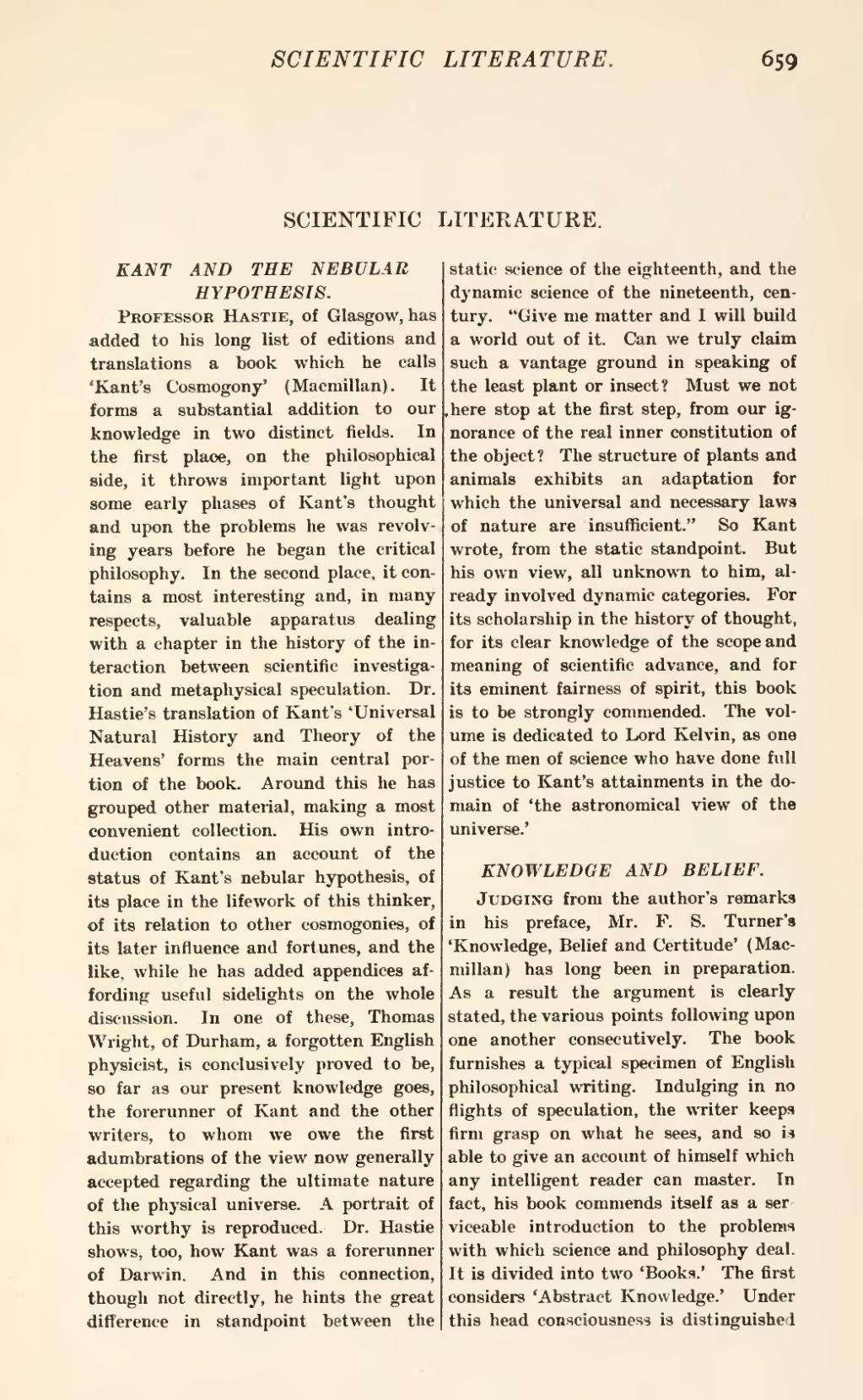KANT AND THE NEBULAR HYPOTHESIS.
Professor Hastie, of Glasgow, has added to his long list of editions and translations a book which he calls 'Kant's Cosmogony' (Macmillan). It forms a substantial addition to our knowledge in two distinct fields. In the first place, on the philosophical side, it throws important light upon some early phases of Kant's thought and upon the problems he was revolving years before he began the critical philosophy. In the second place, it contains a most interesting and, in many respects, valuable apparatus dealing with a chapter in the history of the interaction between scientific investigation and metaphysical speculation. Dr. Hastie's translation of Kant's 'Universal Natural History and Theory of the Heavens' forms the main central portion of the book. Around this he has grouped other material, making a most convenient collection. His own introduction contains an account of the status of Kant's nebular hypothesis, of its place in the lifework of this thinker, of its relation to other cosmogonies, of its later influence and fortunes, and the like, while he has added appendices affording useful sidelights on the whole discussion. In one of these, Thomas Wright, of Durham, a forgotten English physicist, is conclusively proved to be, so far as our present knowledge goes, the forerunner of Kant and the other writers, to whom we owe the first adumbrations of the view now generally accepted regarding the ultimate nature of the physical universe. A portrait of this worthy is reproduced. Dr. Hastie shows, too, how Kant was a forerunner of Darwin. And in this connection, though not directly, he hints the great difference in standpoint between the static science of the eighteenth, and the dynamic science of the nineteenth, century. "Give me matter and I will build a world out of it. Can we truly claim such a vantage ground in speaking of the least plant or insect? Must we not here stop at the first step, from our ignorance of the real inner constitution of the object? The structure of plants and animals exhibits an adaptation for which the universal and necessary laws of nature are insufficient." So Kant wrote, from the static standpoint. But his own view, all unknown to him, already involved dynamic categories. For its scholarship in the history of thought, for its clear knowledge of the scope and meaning of scientific advance, and for its eminent fairness of spirit, this book is to be strongly commended. The volume is dedicated to Lord Kelvin, as one of the men of science who have done full justice to Kant's attainments in the domain of 'the astronomical view of the universe.'
KNOWLEDGE AND BELIEF.
Judging from the author's remarks in his preface, Mr. F. S. Turner's 'Knowledge, Belief and Certitude' (Macmillan) has long been in preparation. As a result the argument is clearly stated, the various points following upon one another consecutively. The book furnishes a typical specimen of English philosophical writing. Indulging in no flights of speculation, the writer keeps firm grasp on what he sees, and so is able to give an account of himself which any intelligent reader can master. In fact, his book commends itself as a serviceable introduction to the problems with which science and philosophy deal. It is divided into two 'Books.' The first considers 'Abstract Knowledge.' Under this head consciousness is distinguished

